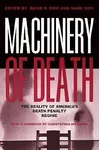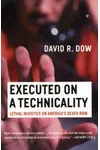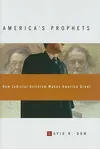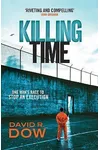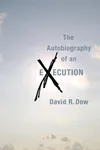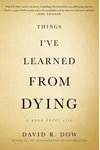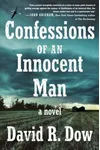Picture a legal scholar who trades courtrooms for gripping narratives, shining a light on the death penalty’s complexities—meet David R. Dow! As a professor at the University of Houston Law Center and founder of the Texas Innocence Network, Dow has spent decades advocating for justice while crafting books that blend raw emotion with legal insight. His work captivates readers, pulling them into the heart of America’s justice system with a storyteller’s flair.
From defending over 100 death row inmates to penning acclaimed memoirs and fiction, Dow’s career is a unique fusion of law and literature. His writing, infused with moral weight and human struggle, invites readers to question the system while feeling the pulse of real lives at stake. Let’s dive into the life and legacy of this remarkable advocate and author.
The Making of David R. Dow
Born with a sharp mind and a passion for justice, David R. Dow graduated magna cum laude from Rice University with a history degree before earning both an M.A. and J.D. from Yale. His early career included clerking for Judge Carolyn Dineen King at the Fifth Circuit Court of Appeals, a role that honed his legal acumen. By 1988, Dow joined the University of Houston Law Center, where he began teaching constitutional law, contracts, and death penalty law, laying the groundwork for his advocacy.
What set Dow apart was his pivot to action: in 2000, he founded the Texas Innocence Network, Texas’s oldest innocence project, driven by a belief that the system often fails the vulnerable. His work with law students to investigate wrongful convictions sparked a parallel passion for writing, where he could reach beyond courtrooms to challenge public perceptions of justice.
David R. Dow’s Unforgettable Stories
Dow’s books are a masterclass in blending legal expertise with human stories. His 2010 memoir, The Autobiography of an Execution, is a gut-punch of a read, chronicling his experiences representing death row inmates. A finalist for the National Book Critics Circle Award and winner of the Barnes & Noble Discover Award, it weaves personal sacrifice—his strained marriage, late nights—with the harrowing realities of his clients’ fates. Critics hailed it as “better than a John Grisham novel” for its raw honesty.
In Things I’ve Learned From Dying (2014), named one of NPR’s best books, Dow reflects on life, loss, and the lessons gleaned from those facing execution. His 2019 novel, Confessions of an Innocent Man, shifts to fiction, telling the thrilling story of a wrongfully convicted chef seeking justice. Praised by John Grisham, it’s a page-turner that channels Dow’s real-world fight against systemic flaws. Co-edited works like Machinery of Death further expose the death penalty’s injustices, cementing his voice in the debate.
Dow’s style is direct yet evocative, blending legal precision with emotional depth. His themes—justice, morality, and human resilience—resonate whether he’s writing scholarly articles or popular pieces for The New York Times and The Washington Post. Each work feels like a conversation, urging readers to confront uncomfortable truths about punishment and redemption.
Why David R. Dow Matters
David R. Dow’s impact transcends the page. Through the Texas Innocence Network and the Juvenile and Children’s Advocacy Project, co-founded with his wife Katya, he’s helped exonerate over a dozen inmates and shaped countless law students into advocates. His writing amplifies these efforts, making the death penalty’s flaws accessible to a global audience—his TED Talk on the subject has over 3 million views. Dow’s ability to humanize complex legal issues has sparked dialogue, challenging readers and policymakers to rethink capital punishment.
Despite setbacks, like a 2015 Texas court sanction for missed deadlines, Dow’s resilience shines. His work remains a beacon for those fighting systemic injustice, proving one voice can ripple through courtrooms and culture alike. He’s not just a lawyer or writer—he’s a storyteller for the silenced.
- Born: Date unavailable, raised in the U.S.
- Key Works: The Autobiography of an Execution (2010), Things I’ve Learned From Dying (2014), Confessions of an Innocent Man (2019)
- Awards: Barnes & Noble Discover Award (2010), National Book Critics Circle Award finalist
- Fun Fact: Lives in Houston and Park City, Utah, with wife Katya, son Lincoln, and dogs Delano and Soul
Ready to explore the intersection of law and heart? Grab The Autobiography of an Execution and dive into David R. Dow’s gripping world of justice and storytelling!
